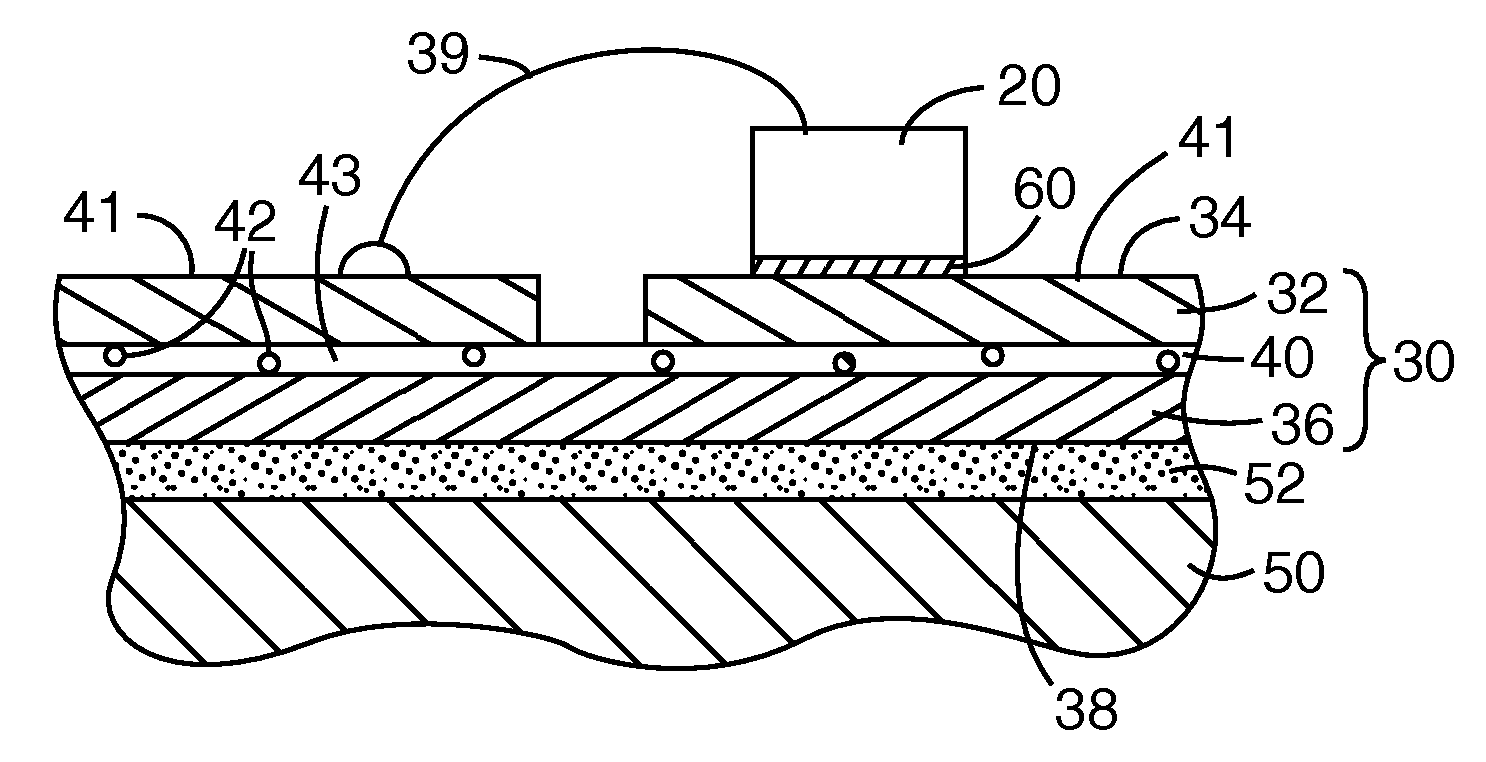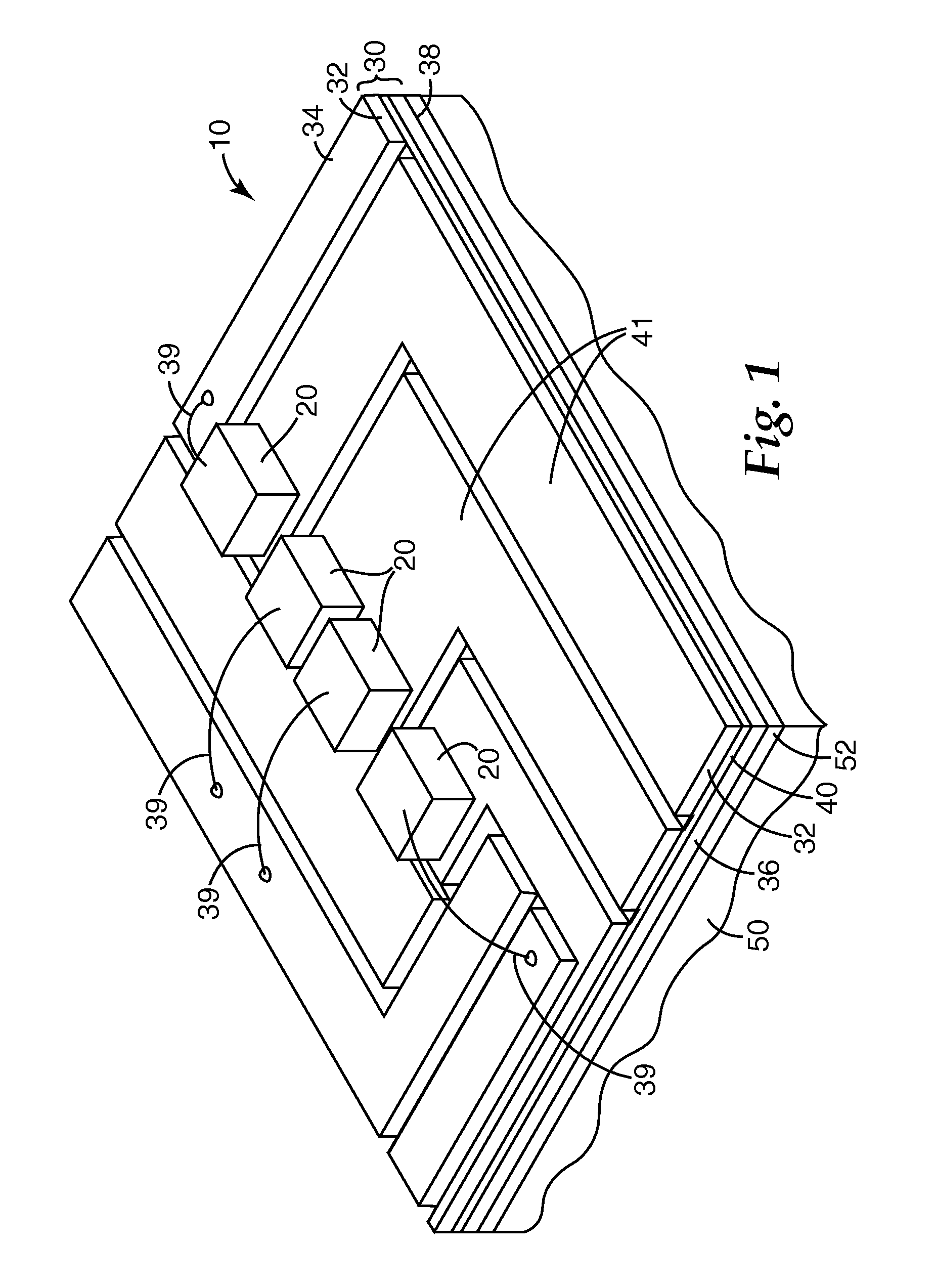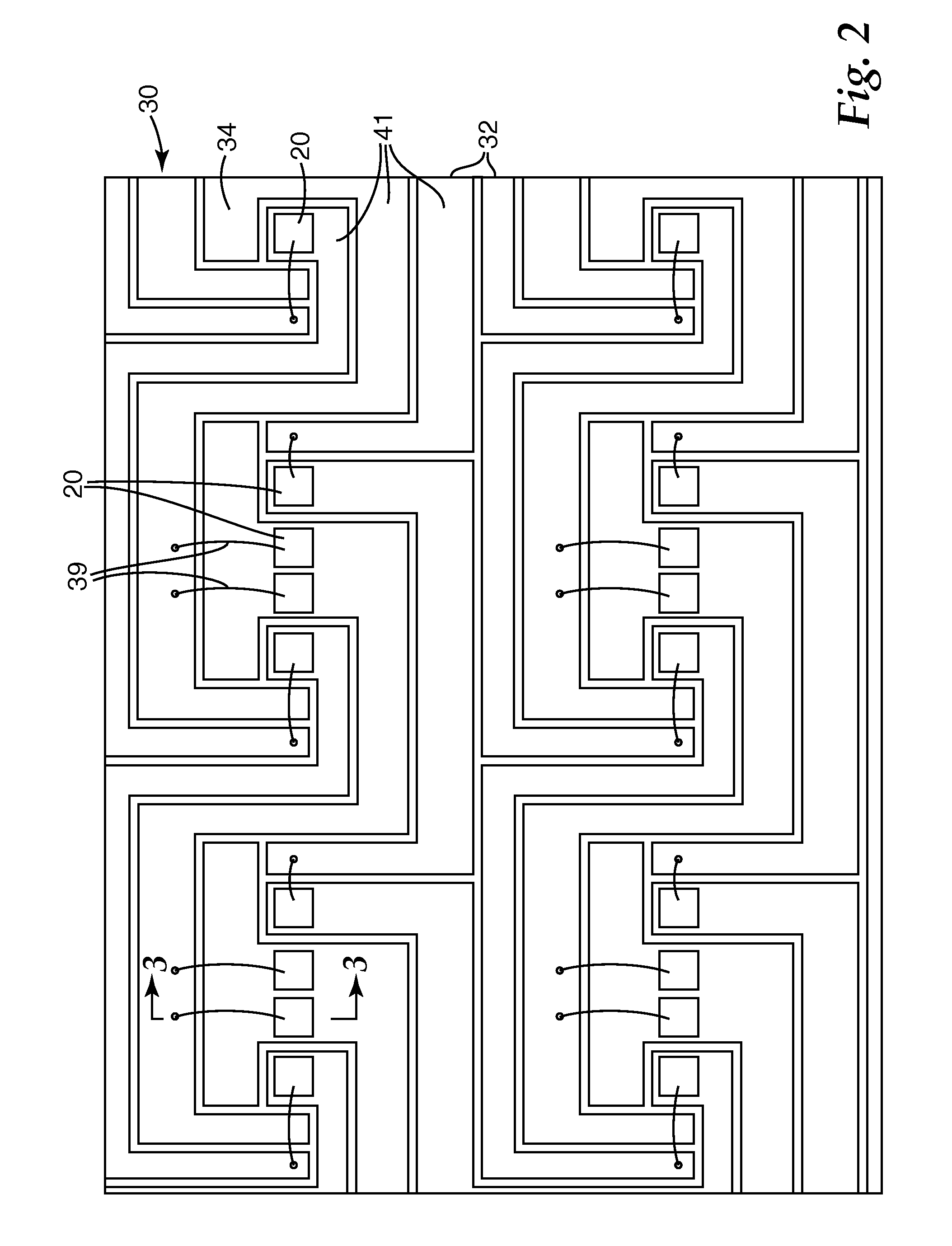LED illumination assembly with compliant foil construction
a technology of led illumination and foil construction, which is applied in the direction of lighting support devices, instruments, lighting and heating apparatus, etc., can solve the problems of reducing the life of leds, increasing local temperatures around led dies, and being unable to quickly transport the heat generated in leds away from leds, so as to improve the thermal conductivity of the insulating layer
- Summary
- Abstract
- Description
- Claims
- Application Information
AI Technical Summary
Benefits of technology
Problems solved by technology
Method used
Image
Examples
Embodiment Construction
[0022]We describe herein illumination assemblies that include LED dies. In this regard, “light emitting diode” or “LED” refers to a diode that emits light, whether visible, ultraviolet, or infrared. It includes incoherent encased or encapsulated semiconductor devices marketed as “LEDs”, whether of the conventional or super radiant variety. If the LED emits non-visible light such as ultraviolet light, and in some cases where it emits visible light, it can be packaged to include an organic or inorganic phosphor (or it may illuminate a remotely disposed phosphor) to convert short wavelength light to longer wavelength visible light, in some cases yielding a device that emits white light. An “LED die” is an LED in its most basic form, i.e., in the form of an individual component or chip made by semiconductor processing procedures. For example, the LED die is ordinarily formed from a combination of one or more Group III elements and of one or more Group V elements (III-V semiconductor). E...
PUM
 Login to View More
Login to View More Abstract
Description
Claims
Application Information
 Login to View More
Login to View More - R&D
- Intellectual Property
- Life Sciences
- Materials
- Tech Scout
- Unparalleled Data Quality
- Higher Quality Content
- 60% Fewer Hallucinations
Browse by: Latest US Patents, China's latest patents, Technical Efficacy Thesaurus, Application Domain, Technology Topic, Popular Technical Reports.
© 2025 PatSnap. All rights reserved.Legal|Privacy policy|Modern Slavery Act Transparency Statement|Sitemap|About US| Contact US: help@patsnap.com



